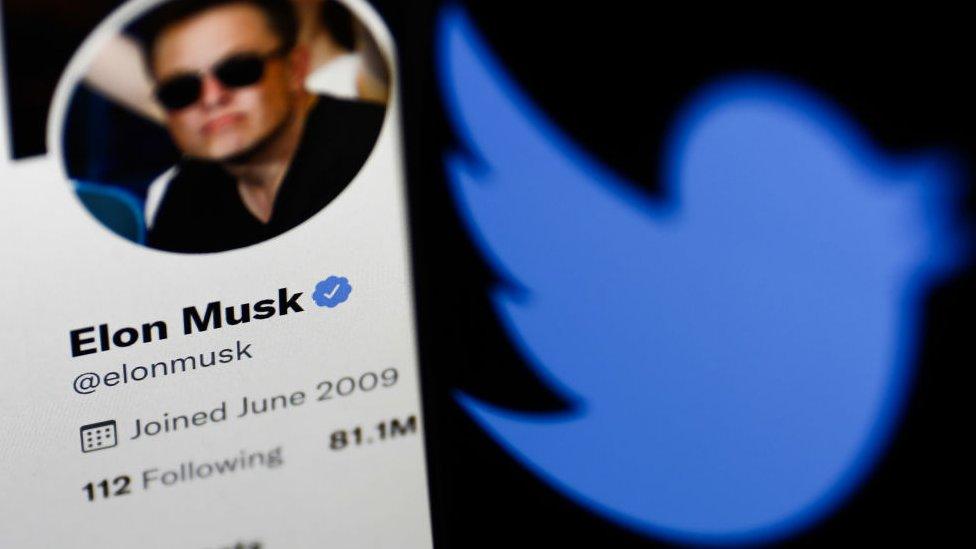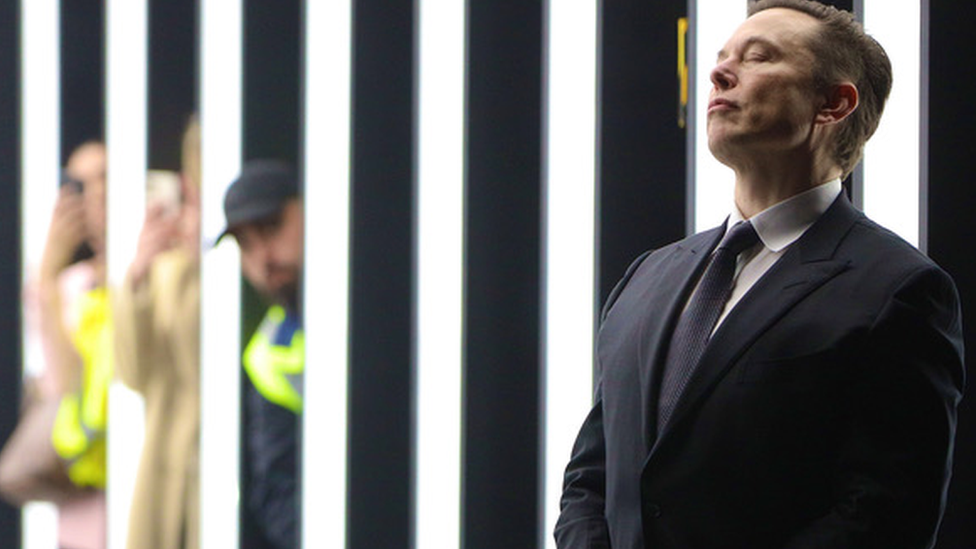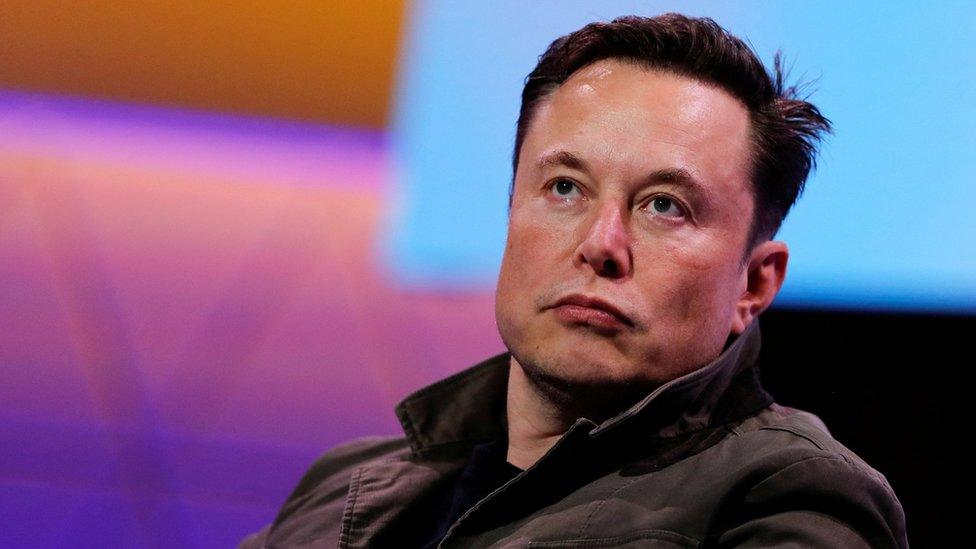Elon Musk will not join Twitter board, says boss
- Published

Elon Musk has decided not to join the board of Twitter, the company's chief executive Parag Agrawal says.
Mr Musk's appointment was due to become effective on Saturday after revealing last week that he had bought a 9.2% stake in the social media platform.
However, Mr Agrawal tweeted: "Elon shared that same morning that he will no longer be joining the board."
The Tesla boss remains Twitter's largest shareholder and the firm will remain open to his input, he added.
Just over an hour after Mr Agrawal's announcement, Mr Musk cryptically tweeted a single emoji. The tweet has since been deleted.
Allow X content?
This article contains content provided by X. We ask for your permission before anything is loaded, as they may be using cookies and other technologies. You may want to read X’s cookie policy, external and privacy policy, external before accepting. To view this content choose ‘accept and continue’.

Over the weekend, the Tesla chief suggested changes to the Twitter Blue premium subscription service, including slashing its price, banning advertising and giving the option to pay in the cryptocurrency dogecoin.
Mr Musk also asked his more than 81 million followers whether Twitter is "dying" and if its headquarters should be turned into a homeless shelter.
And he created a poll asking whether the letter "w" should be removed from the Twitter, with the only options being "yes" and "of course".
Allow X content?
This article contains content provided by X. We ask for your permission before anything is loaded, as they may be using cookies and other technologies. You may want to read X’s cookie policy, external and privacy policy, external before accepting. To view this content choose ‘accept and continue’.

Mr Agrawal said Twitter offered Mr Musk a seat on its board as the company had believed it was "the best path forward", with board members having to "act in the best interests of the company and all our shareholders".
However addressing Mr Musk's decision to decline, Mr Agrawal said: "I believe this is for the best".
"We have and will always value input from our shareholders whether they are on our board or not," he added. "Elon is our biggest shareholder and we will remain open to his input."
Laura Foll, portfolio manager at Janus Henderson Investors, said: "The statement from the Twitter chief executive is, I think, quite telling in that he says 'look, Elon decided not to join the board'. It says in the statement the board offered him a seat [and] it was Elon Musk's decision.
"But the Twitter chief executive goes on to say 'there will be distractions ahead but our goals and priorities remain unchanged. Let's tune out the noise.' I think this is the Twitter chief executive saying 'we want to get on with running the business without these distractions'."
She told BBC Radio 4's Today programme: "This is a very large publicly listed company. There are very strict rules around what board members, what executive members can say publicly. There has to be very strict controls and I think this is the Twitter chief executive just saying 'let's get on with it now, let's run this company and Elon Musk will be a shareholder and we will listen to him along with shareholders'."
As the largest shareholder, Elon Musk has more than four times the 2.25% shareholding of Twitter co-founder Jack Dorsey.
Shares in Twitter soared by more than 27% last Monday after Mr Musk's stake was revealed.
However, many Twitter employees have felt disgruntled by the announcement. According to company insiders, there was anxiety over what impact he would have on the social media company's ability to moderate content in the future.


Twitter's chief executive started his statement with a cryptic line.
"Here's what I can share…"
Clearly a lot has gone on behind the scenes that he has left out.
The announcement of Elon Musk's appointment to Twitter's board appeared to please everyone. Mr Musk seemed happy, Parag Agrawal tweeted out his approval, as did Twitter's former boss Jack Dorsey.
The deal made sense for Twitter. Crucially, in exchange for a board seat, Mr Musk agreed not to buy more than 14.9% of the company.
Mr Musk is so wealthy that he could, in theory, afford to buy Twitter outright, very comfortably in fact.
His decision to reject the offer of a board seat now leaves the door open, if he so wishes, to take an even larger stake in the company.
There are other hints in Mr Agrawal's statement. He says Mr Musk was offered a position on the board - where he would have had to behave in the interests of shareholders.
Is this a cryptic clue that Twitter wanted him on the inside, where perhaps he might do less damage?
Musk is immensely powerful, his wealth and unpredictability makes him a possibly lucrative but also potentially dangerous investor.
He clearly wants to change Twitter. But as a major shareholder with no board seat, what he does next is anyone's guess.

You may also be interested in:
Watch President Zelensky invite Elon Musk to visit Ukraine "after the war"
Related topics
- Published5 April 2022

- Published4 April 2022
